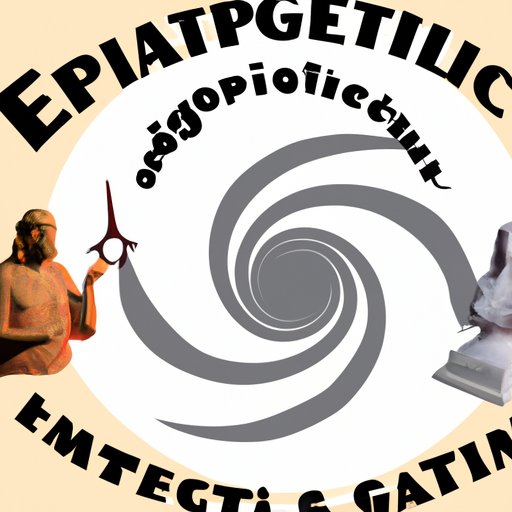Introduction
Metaphysics is an area of philosophy that deals with the nature of reality, existence, and knowledge. It focuses on questions about being, substance, causality, identity, time, and space. Over the years, there has been much debate over whether metaphysics is a science or not. This article will explore this debate, looking at the history of metaphysics and its relationship to science, as well as examining how it applies to modern science.
Examining the Role of Metaphysics in Science
When discussing the role of metaphysics in science, it is important to first understand what science is. Science is a systematic enterprise that builds and organizes knowledge in the form of testable explanations and predictions about the universe. It involves experimentation, observation, and the formulation of theories and ideas based on evidence. So, what does metaphysics have to do with science?
At its core, metaphysics seeks to answer questions about the nature of reality, which can include topics such as the origin of the universe and the nature of consciousness. While these questions cannot be answered through scientific methods, they can provide a framework for understanding the physical world and our place in it. In this way, metaphysics can help inform scientific research and theories.

A Look at the History of Metaphysics and Its Relationship to Science
The study of metaphysics dates back to Ancient Greece, where philosophers such as Plato and Aristotle sought to answer questions about the nature of reality. These thinkers laid the foundation for many of the metaphysical concepts we still use today. For example, Plato argued that reality was composed of two separate realms: the physical world, which we experience through our senses, and the higher realm of Forms, which we can only access through thought and reason.
Religion also played a major role in the development of metaphysics. Many religious traditions have their own metaphysical beliefs, such as the idea of an afterlife or a divine creator. These beliefs helped shape the way people viewed the world and their place in it. As such, religion had a significant influence on the development of metaphysical principles and their relationship to science.
Throughout history, metaphysics and science have often been seen as distinct disciplines. However, in recent decades, there has been a growing trend of integrating metaphysical concepts into scientific inquiry. This shift has been driven by the emergence of new fields such as quantum physics, which has shed light on the interconnection between the physical and metaphysical worlds.

Analyzing the Role of Metaphysics in Modern Science
In modern science, metaphysics plays a significant role in helping us understand the complexities of the universe. For instance, some physicists argue that the laws of nature may be rooted in metaphysical principles such as causality, which states that every event has a cause and effect. Similarly, the concept of time has been linked to metaphysical ideas, with some suggesting that time may be an illusion created by our minds.
In addition to providing insight into the nature of reality, metaphysics can also be used to explain certain phenomena in the physical world. For example, some scientists believe that the concept of energy is rooted in metaphysical principles. They argue that energy is an invisible force that connects all things and enables them to interact with each other.
Finally, metaphysics can also be used to develop strategies for integrating metaphysical concepts into scientific inquiry. For instance, some scientists have begun to use meditation and mindfulness techniques to gain insight into the nature of reality. By doing so, they are able to gain a deeper understanding of the universe and its inner workings.
Conclusion
This article has explored the debate over whether metaphysics is a science and its role in modern science. We looked at the history of metaphysics and its relationship to science, as well as how metaphysical concepts can be applied to current scientific understanding. Ultimately, it is clear that metaphysics plays an important role in our understanding of the universe and should not be overlooked when conducting scientific research.
As we continue to explore the mysteries of the universe, it is important to remember that science and metaphysics are intertwined. By recognizing this connection, we can gain a better understanding of the universe and our place in it.
Summary of Findings
This article has examined the debate of whether metaphysics is a science and its role in modern science. We looked at the history of metaphysics and its relationship to science, as well as how metaphysical concepts can be applied to current scientific understanding. It is clear that metaphysics plays an important role in our understanding of the universe and should not be overlooked when conducting scientific research.
Recommendations for Further Exploration
Further exploration into the relationship between metaphysics and science could focus on specific areas such as quantum physics, neuroscience, and artificial intelligence. Additionally, more research could be done on strategies for integrating metaphysical concepts into modern scientific inquiry. Finally, further study could be done on the implications of metaphysical ideas for our understanding of the universe.
(Note: Is this article not meeting your expectations? Do you have knowledge or insights to share? Unlock new opportunities and expand your reach by joining our authors team. Click Registration to join us and share your expertise with our readers.)
